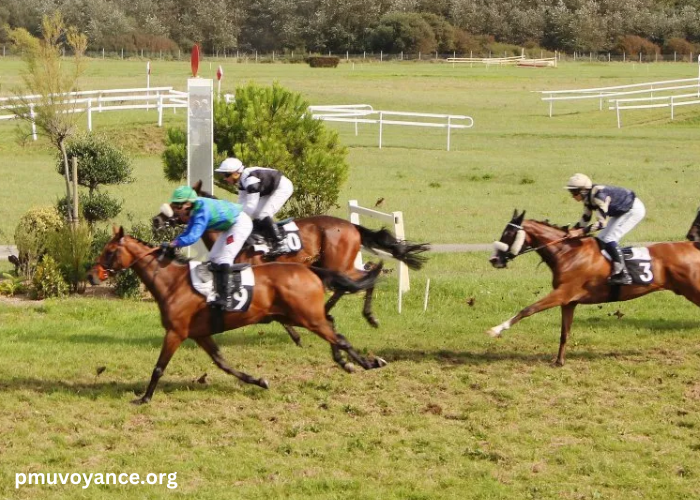
In the heart of France’s rich cultural tapestry lies a cherished tradition deeply rooted in its heritage – horse racing. Among the various facets of this equestrian world, “La Filière PMU” stands out as a cornerstone of the French horse racing industry. From its historical origins to its modern-day significance, this article aims to delve into the intricate workings of “La Filière PMU,” offering readers a comprehensive understanding of its role in shaping the country’s racing landscape.
The Origins of “La Filière PMU”
To comprehend the essence of “La Filière PMU,” one must journey back in time to the 19th century when horse racing first gained widespread popularity in France. Established in 1930, the Pari Mutuel Urbain (PMU) emerged as a pivotal institution, revolutionizing the way bets were placed on horse races. Initially operating as a state-owned monopoly, PMU quickly became synonymous with horse racing in France, laying the groundwork for what would later evolve into “La Filière PMU.”
Understanding “La Filière PMU”
“La Filière PMU” encompasses a vast network of stakeholders interconnected through their involvement in various aspects of horse racing. At its core, it comprises breeders, owners, trainers, jockeys, racecourses, and betting outlets, all working in tandem to sustain the vitality of the industry. Central to this ecosystem is the PMU itself, serving as the principal platform for betting activities and revenue generation.
Key Players in “La Filière PMU”
- Breeders: The foundation of any successful racing enterprise begins with the breeding of thoroughbred horses. Breeders play a pivotal role in producing quality racing stock, ensuring the continuity of the sport’s heritage and competitiveness.
- Owners: From prestigious racing stables to individual enthusiasts, owners invest significant resources in acquiring and maintaining racehorses. Their involvement is crucial not only for financial support but also for fostering a culture of passion and dedication within the industry.
- Trainers: Tasked with the responsibility of preparing racehorses for competition, trainers possess a wealth of knowledge and expertise in equine management and conditioning. Their meticulous training regimes are instrumental in maximizing the potential of each horse under their care.
- Jockeys: Often hailed as the stars of the show, jockeys showcase their exceptional riding skills and tactical acumen on race day. Their ability to form symbiotic partnerships with horses can spell the difference between victory and defeat in the fiercely competitive world of horse racing.
- Racecourses: Serving as the stage for thrilling displays of speed and agility, racecourses attract spectators from all walks of life. These iconic venues not only host prestigious events but also contribute to the local economy and tourism industry.
- Betting Outlets: As the primary source of revenue for “La Filière PMU,” betting outlets play a vital role in sustaining the financial viability of the industry. Whether online or offline, these platforms offer punters the opportunity to wager on races and indulge in the excitement of horse racing.
Economic Impact of “La Filière PMU”
The economic significance of “La Filière PMU” extends far beyond the confines of the racing circuit, permeating various sectors of the economy. According to recent statistics, the French horse racing industry generates billions of euros in revenue annually, supporting thousands of jobs and contributing to both regional and national GDP.
Challenges and Innovations
Despite its storied legacy, “La Filière PMU” faces a myriad of challenges in the modern era, ranging from regulatory hurdles to shifting consumer preferences. In response, industry stakeholders have embraced innovation, leveraging technology to enhance the fan experience, streamline operations, and attract new audiences to the sport.
Conclusion
“La Filière PMU” stands as a testament to the enduring allure of horse racing in France. From its humble beginnings to its status as a multi-billion euro industry, it remains an integral part of the nation’s cultural fabric. By fostering collaboration among breeders, owners, trainers, and other key players, “La Filière PMU” ensures the continued prosperity of French horse racing for generations to come.